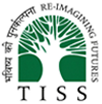Partners
- Harvard T.H. Chan, School of Public Health Boston, MA, USA
- Emory University Atlanta, GA, USA
- All India Institute of Medical Sciences New Delhi, India
- Health Care Without Harm Reston, VA, USA
- Department of Environmental Health Engineering
Sri Ramachandra University, Chennai, India
- Children's Health and Environment Program University of Queensland, South Brisbane, Australia
- Madras Diabetes Research Foundation Chennai, Tamil Nadu, India
- Council on Energy Environment and Water New Delhi, Delhi, India
- Health Effects Institute Boston, MA, USA
- National Resources Defense Council
New York, NY, USA
- Chest Research Foundation Pune, Maharashtra, India
- Shakti Sustainable Energy Foundation New Delhi, Delhi, India
- National Institute of Advanced Studies Bengaluru, India
- Chintan Environmental Research and Action Group New Delhi, India
- Karo Sambhav Gurugram, Haryana
- GAIL India Limited New Delhi, India
- National Environmental Engineering Research Institute New Delhi, India
- Sastra University Thanjavur, Tamil Nadu
- Lung Care Foundation New Delhi, India
- India Meteorological Department New Delhi, India


